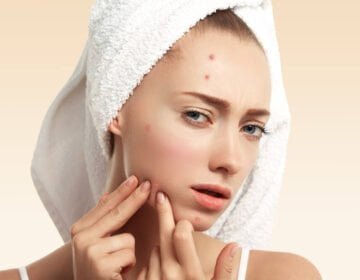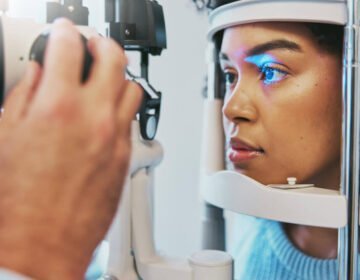
Best Eye Health Supplements 2024
Eye health supplements are gaining popularity as more and more people are giving importance to their eye health. Your eyes are the windows to your soul and also to the world.
Good vision is a gift, and preserving it is essential. In this technological age, where screens are worldwide, the disclosure of harmful blue light is the constant, sharp vision to reduce the risk of eye diseases.
Our eyes face different threats. Eye strain, dryness, and age-related eye conditions are on the rise. In this context, we will explore the best supplements to keep your eyes healthy and vibrant in 2024.
Understanding Eye Health
Before we explore the world of supplements, it is crucial to understand the basics of eye health. Your eyes need specific nutrients to function optimally. Moreover, these nutrients support a variety of aspects of eye health, from maintaining sharp vision to removing the risk of eye diseases.
Critical Nutrients for Healthy Eyes
To maintain good eye health, one must consume a variety of nutrients. These involve lutein and zeaxanthin, omega-3 fatty acids, vitamins A, C, and E, zinc, bilberry extract, astaxanthin, ginkgo biloba, B vitamins, saffron, alpha-lipoic acid, Copper, and selenium. Each of these nutrients actively uniquely preserves your vision.
Top Eye Health Supplements for 2024
Lutein and Zeaxanthin
Regarding Lutein and Zeaxanthin, Lutein and zeaxanthin are carotenoids that act as natural antioxidants in the eyes. So, they help to protect against harmful UV rays and rusted damage.
Omega-3 Fatty Acids
Omega-3 fatty acids in fish oil help remove the risk of dry eyes and Age-related Macular Degeneration (AMD). There are three types of omega-3 fatty acids such as DHA, ALA, and EPA.
The omega-3 fatty acids help with the heart health, immune system, and endocrine system, and also assist with the function of the cells in the body. These omega-3 fatty acid supplements boost tear production.
Vitamin A
Vitamin A is very important to have good vision, especially in dim-light conditions. Moreover, it also helps to prevent night blindness. Vitamin A helps maintain eye health which protects the cornea and the conjunctiva parts of the eye.
There are mainly two types of Vitamin A. Supplements are a great way to intake Vitamin A but still food is the best option to intake it.
Vitamin C
Vitamin C is an antioxidant that supports the health of blood vessels in the eyes and may reduce the risk of a waterfall. It helps to maintain good eye health as it may help to prevent or slow the progression of cataracts and age-related macular degeneration (AMD).
As vitamin C is not stored well in our body, this means we need to intake it through foods and sometimes supplements. Vitamin C is found in fruits such as oranges, kiwi fruit, strawberries and vegetables such as broccoli, white potatoes, etc.
It helps with the immune system function and also helps absorb iron. It is a good vitamin as it helps to protect the eye from oxidative damage. So, you better start taking your vitamin C supplements today if you are lacking it or consume it through foods.
Vitamin E
Talking about Vitamin E, Vitamin E protects the cells in the eyes from oxidative stress and may slow the progress of certain eye conditions.
Zinc
Zinc critically maintains the retina’s health, and that can reduce the risk of AMD.
Bilberry Extract
Bilberry extract contains antioxidants that can improve night vision and remove eye fatigue.
Astaxanthin
Astaxanthin is a powerful antioxidant that can help to remove eye strain and fatigue.
Ginkgo Biloba
The Ginkgo biloba enhances blood flow to the eyes, benefiting glaucoma and AMD.
B Vitamins
B vitamins like B6, B9, and B12 support overall eye health and may remove the chance of AMD.
Saffron
Saffron has anti-inflammatory properties that can help protect the retina from damage.
Alpha-Lipoic Acid
Alpha-lipoic acid is an antioxidant that can remove the chance of diabetic retinopathy.
Copper
Talking about Copper, Copper is essential for maintaining the health of the optic nerve.
Selenium
Selenium is an antioxidant that can protect the lens of the eye. Though you might never heard of selenium, it plays a very important role in our health. A diet rich in selenium helps to improve memory loss such as in people with Alzheimer’s disease.
It also keeps our heart health maintained by keeping oxidative stress in check and reducing the risk of various heart diseases. It is also said that higher blood levels of selenium protect against certain cancers while using it as supplements can improve people’s lives undergoing radiation therapy.

How to Choose the Right Eye Health Supplement
Choosing the right eye health supplement can be unique and different for everyone. Consider consulting with an eye care specialist to determine your specific needs for supplements.
Also, look for accessories from reputable brands, and always check the label for the presence of the critical nutrients mentioned.
Benefits of Eye Health Supplements
Eye health supplements can provide numerous benefits, including better vision, lower chance of eye diseases, and improved eye comfort.
Potential Side Effects and Precautions
If supplements can be beneficial, being aware of potential side effects and medication interactions is crucial. Moreover, always follow the suggested dosage and consult a healthcare provider if concerns arise.
Lifestyle Tips for Maintaining Good Eye Health
Additionally, supplementing a healthy diet and adopting a few lifestyle changes can go a long way in maintaining good eye health. Moreover, this includes regular eye exams, removing screen time, and protecting your eyes from UV rays.
Your eyes are unique, and caring for them should be a priority. With the help of the best eye health supplements for 2024, you can safeguard your vision and enjoy the clear, vibrant eyesight that comes for years.
FAQ’s
Can I take eye health supplements with other vitamins?
In most cases, yes you can take eye health supplements with other vitamins. But, it’s best to consult your doctor about whether you can take the vitamins you’re consuming or not alongside eye health supplements.
Are there any side effects of eye health supplements?
Usually, eye health supplements are safe as long as they are taken as prescribed. However, you might experience mild side effects such as an upset stomach. So, only take your supplements as prescribed by your doctor.
Do I still need to eat a healthy diet even if I take eye health supplements?
Yes, of course, there is no doubt about it. Supplements are only to complement your healthy diet but not replace it completely. Foods rich in vitamins A, E, C, zinc, and omega-3; all are essential for eye health.
Can eye health supplements prevent vision loss?
Eye health supplements help to reduce the risk of eye conditions such as age-related macular degeneration but don’t guarantee the prevention of vision loss.
How often should I take my eye supplements?
Most eye supplements are recommended to be taken once or twice daily, but it’s essential to follow as prescribed by your doctor or healthcare professional.
















